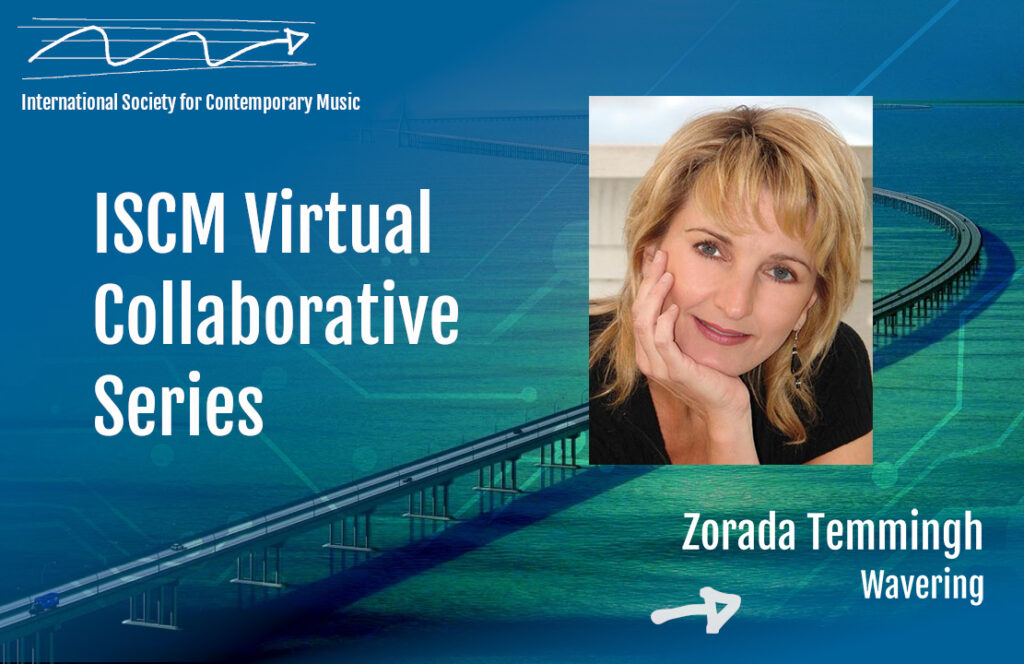Zorada Temmingh: Wavering

(Submitted by ISCM – SOUTH AFRICA SECTION)
Zorada Temmingh is considered one of South Africa’s foremost organ improvisers. In addition to being the first South African to release a CD with organ improvisations (she has released six to date), she was also the first to do soundtrack improvisations for silent movies. For her groundbreaking contribution to classical music she received a special Kanna award at the KKNK in 2006. In 2019 she was awarded the FAK Andrew Murray prize for her contribution to Christian music. She has been the organist of the Moederkerk in Stellenbosch since 1986. International performances include concert tours to the USA, the UK, Switzerland, Belgium and Namibia.
About Wavering, the composer writes: “The improvisation reflects changing stories I told myself to process the impact of the pandemic. The work is built on two main musical elements, namely the pentatonic scale (the basis for traditional Chinese as well as African music for thousands of years) and the well-known hymn, Be still my Soul (Sibelius). The work opens with a drone on E-flat against which melodic fragments of the pentatonic scale precede a sweet melody depicting a calm pastoral scene in China. This is interrupted by a dissonant descending figure signifying the first news of the virus reaching the West. The mood changes to uncertainty. Soon a new scale is heard in the bass: a hybrid between pentatonic and minor. This repetitive scale is frustratingly incomplete: it continually stops on the leading note to denote the uncertainty and ominous feelings of being threatened by some unseen killer during the hard lock-down. Against the low ostinato two melodies are heard: a high pitched flute tune depicting determinedly positive self-talk and contrived cheerfulness, and a middle-register oboe melody – the first appearance of Be still my Soul in which consolation is sought in trying circumstances. After this the texture thins out, as if breath is being held in hope that all is over. But then the first stirrings of the second wave appear, and an abrupt crescendo stumbles into Kyrie eleison (Lord, be merciful) after which another verse of Be still my soul is heard in forte dissonant chords, dissolving into piano fragments of the chorale. Single phrases of the chorale are heard a last time in an earnest plea ‘… thy hope, thy confidence let nothing shake; all now mysterious shall be bright at last.’ The work ends in the quiet relief after the second wave.”

ISCM
